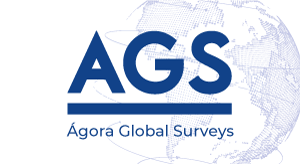Code Of Ethics
Code of Ethics
The following is designed as a reference guide for Ágora Global Services, who wish to limit their liability while conducting the marine and non-marine inspections, loss adjusting and loss prevention surveys.
This is not intended to be legal advice and should not be construed as such.
First and foremost, make sure your client understands what you do professionally and what you will not do. This would be the scope of your expertise. Marine and non-marine surveys are basically “sensory reports” inspect only that for which you are qualified.
- Always check safety first. Follow safety guidelines in preparing the inspection report and while you are performing the survey.
- Recommend hiring mechanics rigging inspectors or salvage contractors on individualized case by case instances. Recommend the client hire these inspectors repair persons assist where possible, avoid conflict of interest at all times.
- Insured (owners or their representatives) should be advised to be present during all inspections if at all possible.
- On all recommendations/standards writing, refer to applied standards.
- Obtain all paperwork applicable registrations documentations, broker listings, prior surveys and sales agreements before starting the inspection, review carefully.
- Never “pad” (increase or decrease) values at the request of anyone.
- Remember who your customer is. Your customer is the person who pays your fee.
- Never give out confidential written or oral reports to anyone other than your customer. A survey is a confidential report at all times. Surveys are confidential, and the surveyor is responsible for not divulging confidential information.
- Use standard checklists for your own business. Never boilerplate or prepare generic forms with generic writing. Address each case individually.
- If you are an expert witness, only perform reports and surveys you are qualified to do on vessels, cargoes, properties, equipment, etc., you are knowledgeable.
- Include a disclaimer, warranty clause and confidentially, statement on your reports no-matter what the intended purpose of the report.
- All reports are confidential. Make sure your customer understands your report, defects and deficiencies noted and why.
- Report only that which you have seen. Never skip areas on “assumption” all is well.
- Make yourself available to the customer for review of the survey or job notes on a professional basis for a certain time-period after the survey report is completed.


